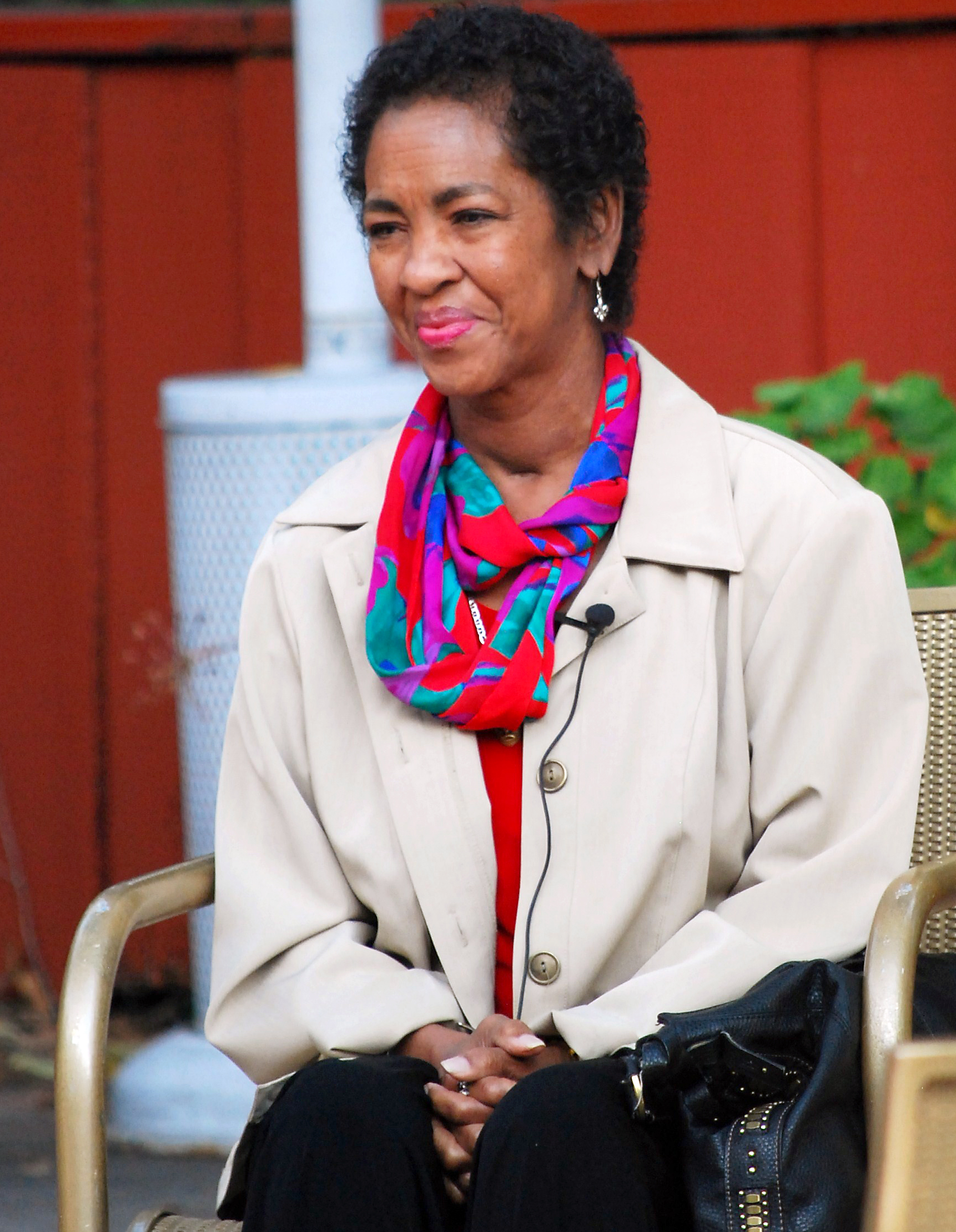Alta Ray has been donating blood since she was a young adult.
But in September 2008, when she was diagnosed with leukemia, she experienced what it was like to be on the other side of the needle.
On Friday at a ceremony held by the UCLA Blood and Platelet Center, Ray, a 56-year-old teacher from South Los Angeles, met 10 strangers who helped save her life.
“I’m so grateful and honored to be able to look you in the eye and thank you for my life,” she told the room of more than 100 frequent donors and staff members. “I never imagined that I would have this opportunity. … Without you I’d be on my next life cycle, and I’m not through with this one,” she said.
In a ceremony that took four years for the center to plan, Ray was introduced to the 10 most frequent donors who contributed to the 93 transfusions she received at UCLA.
“Some of these people have donated hundreds of times,” said Linda Goss, recruitment supervisor for the UCLA Blood and Platelet Center, adding that it is rare for anonymous donors and patients to meet.
Ray said every time she received a transfusion, she wasn’t sure whom to thank, but was grateful every time.
After getting past the legal hurdles of patient and donor confidentiality, Goss and Fernando Gironas, operations coordinator for the center, had to find a patient who both agreed to discuss their condition and who had not received most of their donations from high school students.
When they pulled up Ray’s file, the top 17 donors were regulars the staff was familiar with from both the Ackerman Union and Gayley Avenue donation centers, Goss said.
“I don’t even think we finished explaining to her (what we wanted to do) and she was like, “˜Yup! I’m in,'” Gironas said.
Ray, a petite woman, who was present with her family, never stopped beaming during the ceremony, cracking jokes and laughing frequently.
“When we were referred to her, we were told she was lovely, but (when we met her) she was so warm and open to this and so agreeable and funny,” Goss said. “She struggled with her disease ““ basically almost lost her job. It was really good to see … something that made her feel good.”
Gironas added that seeing patients like Ray benefit from the donors he develops close friendships with makes his job worth it.
It is likely that UCLA uses the most blood products of any hospital in the area, he said, because of the trauma center and the medical center.
During platelet apheresis, a donor’s blood is separated into whole blood, plasma and platelets, which help to form clots to stop bleeding. The needed component is stored, and the rest is cycled back into the donor in a process that takes about an hour and a half to two hours.
Because the shelf life is only five days, platelets are in high demand. They’re especially necessary for cancer patients like Ray, who have low counts after chemotherapy, .
“If she didn’t get those units she would have never made it out of the hospital,” Gironas said.
While most people don’t necessarily think about donating blood, both Gironas and Goss said students at UCLA make a conscious effort. Both centers are generally booked with platelet donations for about two weeks.
Patients are monitored during each transfusion and when they respond positively, donors will often times be called back in to donate again for the patient.
Screenwriter Matthew Hoffman, 48, who has made 249 donations, received such a call after Ray responded well to his platelets.
“They said, “˜(The patient) had a really good response, could you come in again?'” he said. “It was just a call like that makes you feel great and you want to come in (and donate).”
Each donor who spoke noted that the blood center staff makes what could be an uncomfortable process an enjoyable one, as they become friends over many visits.
“It’s a simple act, and I’ve found out how large my support network is as a result of this whole situation, … but had it not been for the gift you gave, of yourselves, I wouldn’t be standing here today,” Ray said.
For more information on blood and platelet donation, call 310-825-0888, ext. 2, or visit the Blood and Platelet Center on the A-level of Ackerman Union.
With reports from Jennifer Chyu, Bruin contributor.
